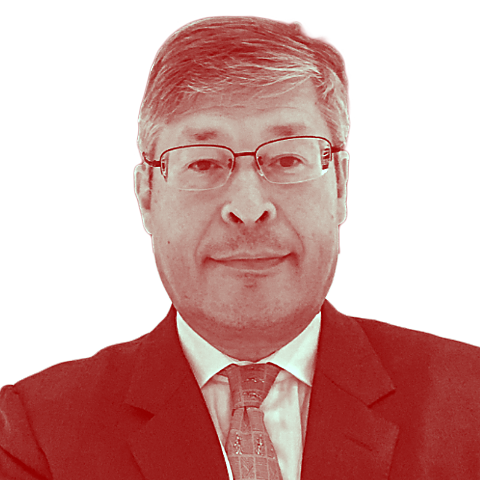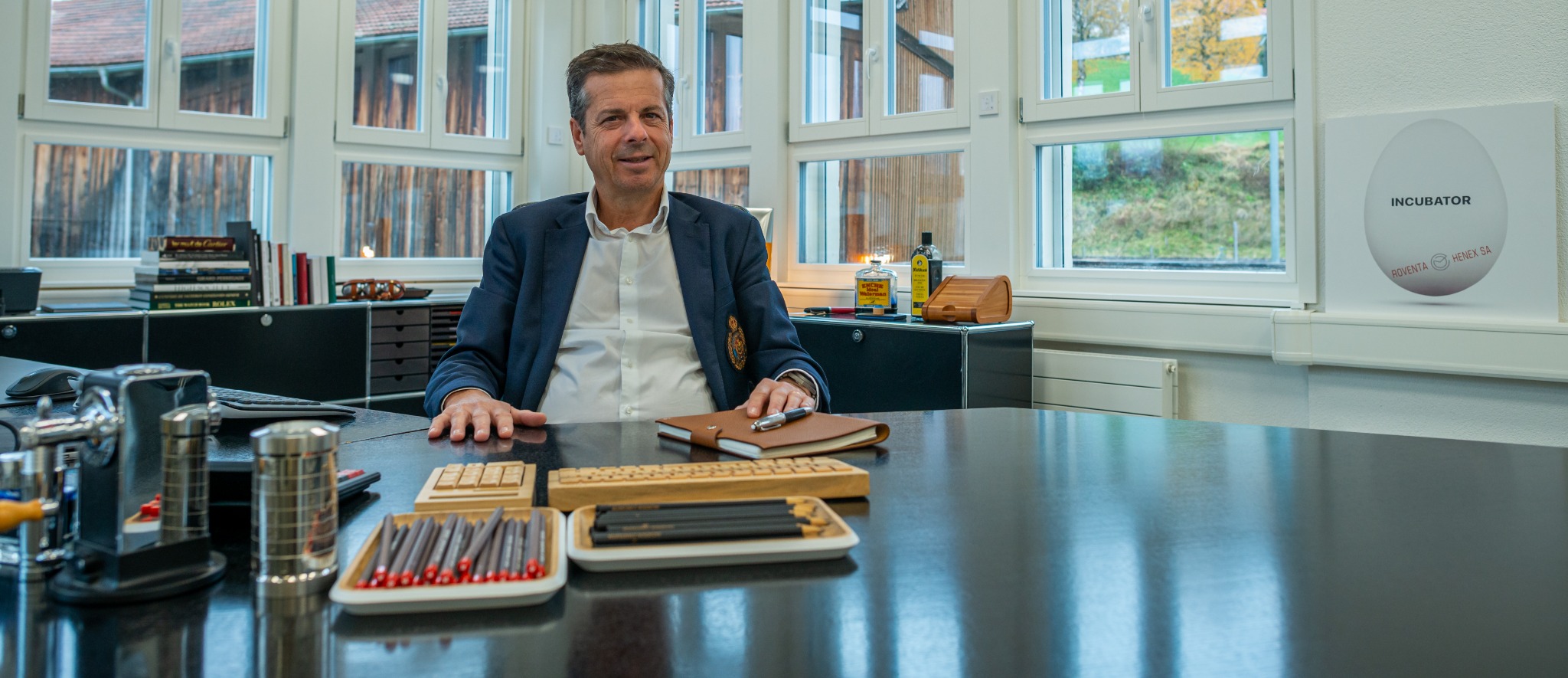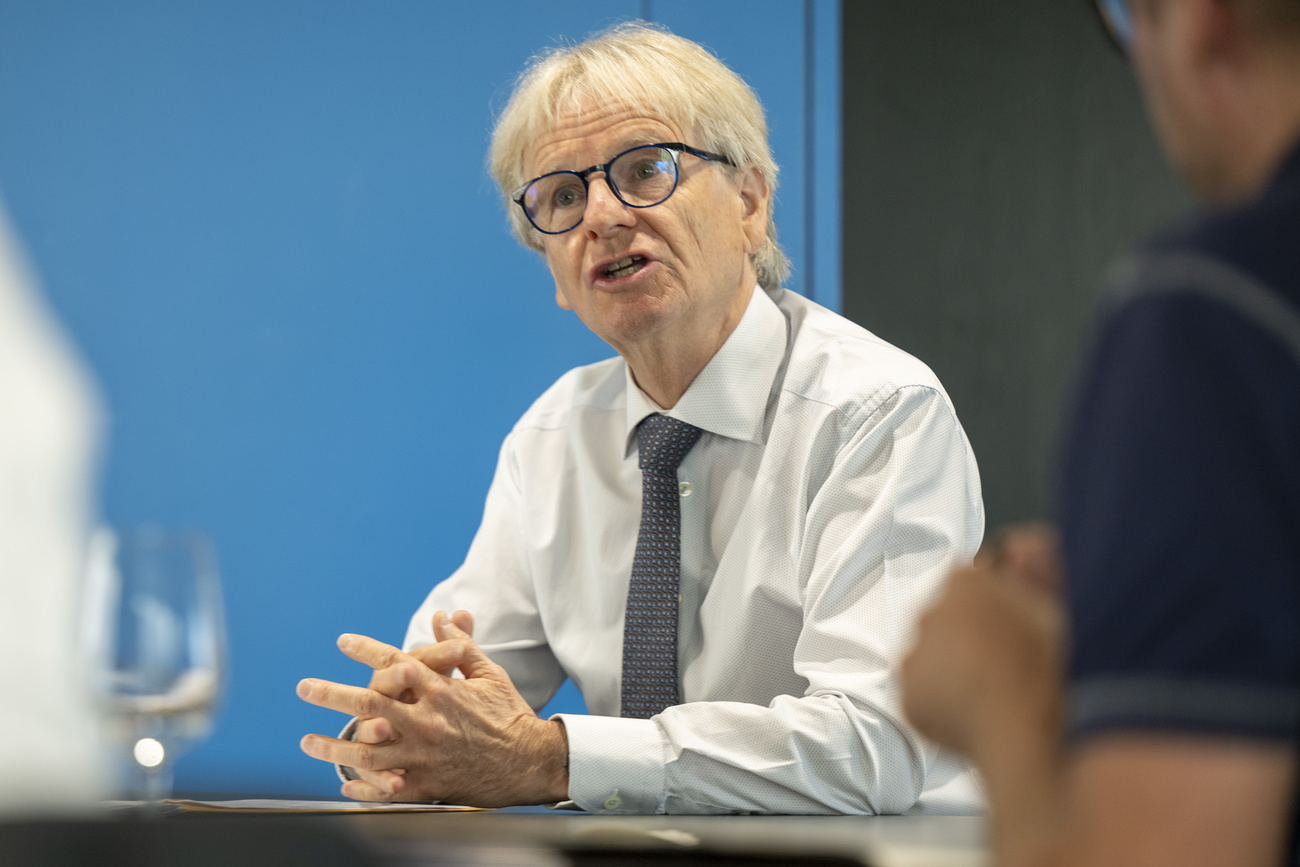Head of Hitachi Europe Brice Koch: ‘I really admire the corporate culture in Japan’

Brice Koch, the Swiss chair of Hitachi Europe, embodies and highlights his company’s ongoing efforts to globalise. Its innovations include diversifying senior management and acquiring large subsidiaries outside Japan.
Foreign nationals run roughly half of the largest Swiss companies. Nestlé, Novartis, Roche and ABB, for example, are headed by non-Swiss. The major Japanese groups, in contrast, traditionally employ few non-Japanese in senior management. At Hitachi, Brice Koch is part of shift towards internationalisation.
Koch has a PhD in materials science from the federal technology institute ETH Zurich. From 2018 to 2023 he was president and CEO of Hitachi Astemo (90,000 employees). He is currently chair of Hitachi Europe (43,000 employees in 128 subsidiaries). From April 2024 he will take on additional global responsibilities as executive vice president, head of global markets strategies, chief strategy officer, and chief risk management officer for the Hitachi Group (320,000 employees).
Despite his extraordinary career, Koch hardly ever gives lengthy press interviews. He made an exception for SWI swissinfo.ch.
Brice Koch was born in France and is a naturalised Swiss citizen. He studied mechanical engineering at the federal technology institute ETH Zurich, graduating in 1993 with a PhD in materials science. Koch then worked at ABB for 19 years, becoming group executive vice president and head of the power systems division. He was then CEO of Oerlikon for three years.
In 2017, Koch joined the Hitachi Group, and in 2018 he was named president and CEO of Hitachi Astemo (90,000 employees), which specialises in automotive technology. Since July 2023, he has been chair of Hitachi Europe (43,000 employees in 128 subsidiaries). In April 2024, he will also become executive vice president, head of global markets strategies, chief strategy officer, and chief risk management officer for the entire Hitachi Group (320,000 employees).
SWI swissinfo.ch: How did you become CEO of Hitachi Astemo and then chair of Hitachi Europe?

Brice Koch: After the bankruptcy of Lehman Brothers in 2008, Hitachi faced existential challenges. [It] came to the conclusion that it couldn’t limit itself to the Japanese market for salvation and expansion – and that it was essential to introduce a strategy of forced globalisation.
In my work at ABB, I was in contact with Hiroaki Nakanishi. A few years later, when he became chair of Hitachi, he asked me to join him as CEO of Hitachi Astemo and, in this way, to participate in the internationalisation of his group.
SWI: How would you define your current and future roles?
B.K.: My role is to optimise our activities outside Japan. Not only in Europe but, as of April 2024, also in the Asia-Pacific region, in China, and on the American continent. To achieve this, I’m counting on one of the Hitachi Group’s distinctive strengths: in addition to our skills in operational technology (trains, transformers, etc.) we have extensive know-how in information technology (including artificial intelligence). This complementarity allows us to offer comprehensive solutions to our customers.
SWI: How would you compare Hitachi’s corporate culture to that of your former Swiss employers?
B.K.: I won’t hide the fact that I really admire the corporate culture in Japan. In [Japan] the desire to work hard and contribute positively to society are exceptionally pronounced. I’m also very impressed by the listening skills, respect for others, and breadth of knowledge of my Japanese colleagues. And, in turn, I think my colleagues value my capacity to make rapid decisions and take calculated risks.
The accident at Haneda airport at the beginning of this year is a good example of Japanese culture and efficiency: the rapid evacuation of 367 passengers and 12 crew members from an aeroplane in flames is a feat that would not have been possible elsewhere in the world.
SWI: In a group like Hitachi, are all important decisions made in Tokyo?
B.K.: Historically, Hitachi, like many other large Japanese companies, was indeed highly centralised in Tokyo. But this practice has waned significantly over the past few years.
Hitachi’s international opening and globalisation were cemented through major international acquisitions, such as ABB’s power grids division. Thanks to these additions, a significant number of our key activities (executive committee, research-and-development centres, production sites, etc.) are located outside Japan.
SWI: Are any located in Switzerland?
B.K.: Of course. Our energy division, for example, is based in Zurich. We also have four production sites in Switzerland, as well as a research centre focused on energy strategy. In total, we employ about 3,000 people in Switzerland.
SWI: What percentage of Hitachi’s senior management is non-Japanese?
B.K.: As of April 2024, 23% of our senior managers will be of non-Japanese origin. At the top of the hierarchy, directly under the Japanese CEO, we have four executive vice presidents, two of whom are non-Japanese. Five of the 12 members of our board of directors are foreigners.
SWI: What language is used in meetings of the executive committee and the board of directors?
B.K.: All of these meetings are in both Japanese and English. This is fortunate because learning Japanese is very difficult, so despite my best efforts my command of this language remains rudimentary.
SWI: Large Japanese companies are known for their systems of lifelong employment and promotion based on seniority. Is this how Hitachi functions?
B.K.: At Hitachi, this has no longer really been the case for about three years because we’ve introduced a system to evaluate managers based on performance.
SWI: What are the promotion opportunities for women at Hitachi?
B.K.: In the past, I think that women, particularly Japanese women, had much better opportunities in foreign companies, especially outside [Japan]. Fortunately, within our company, this situation is rapidly evolving in the right direction.
What’s more, as of April 2024, the group’s head of human resources will be a woman. But although we’re aiming for diversity, competence remains the key factor because we don’t believe in the effectiveness of gender quotas alone.

More
Japan and Switzerland: a heart in two parts
SWI: Hitachi is a behemoth with 320,000 employees and 696 subsidiaries. Given this complexity, how do you encourage internal synergy?
B.K.: Our group has three main business sectors: green energy and mobility, connective industries, and digital systems and services. Without going into detail, my approach is to create synergy not only within each business sector but also between sectors.
For example, we facilitate our customers’ transition from one sector to another. In addition, we offer new services and solutions using the combined expertise of different sectors.
SWI: In industrial circles, Hitachi is known for its innovations. How do you develop new products?
B.K.: Hitachi has its own research centres on several continents. We also spend a significant amount of our time with our clients in “co-creation” meetings. Lastly, we collaborate with a number of universities, notably in Japan, Germany and the UK. Personally, as a member of the board of trustees of the ETH Foundation, I try hard to create links between the federal technology institute ETH Zurich and Hitachi.
SWI: Swiss companies are very interested in the Japanese market, but it is considered challenging. Do you share this view?
B.K.: Based on my experience at ABB, I feel the Japanese market is particularly demanding, but in a positive way. Japanese customers have unparalleled standards for quality and service combined with unusual requests. For foreign companies it’s crucial to be attuned to all of these specificities. The main challenge is that adapting products for the Japanese market can be extremely expensive, especially since the market is relatively small.
SWI: Some Japanese companies have relocated their headquarters outside Japan to force internationalisation. The group SunstarExternal link (roughly 4,000 employees), for example, is based in canton Vaud. What about Hitachi?
B.K.: This is a recurring question [for us], but for the moment nothing has been decided. In my opinion, the difficulty of relocating a head office shouldn’t be overlooked. And our efforts to internationalise shouldn’t undermine the strengths of our [110-year-old] Japanese roots.
Edited by Samuel Jaberg. Adapted from French by K. Bidwell
Do you want to read our weekly top stories? Subscribe here.

In compliance with the JTI standards
More: SWI swissinfo.ch certified by the Journalism Trust Initiative














You can find an overview of ongoing debates with our journalists here . Please join us!
If you want to start a conversation about a topic raised in this article or want to report factual errors, email us at english@swissinfo.ch.